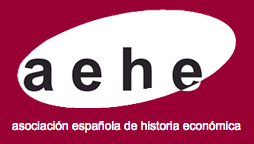An education to colonise. The educational discrimination of indigenous people in colonial settings: lessons from Colombia and Mozambique
DOI:
https://doi.org/10.33231/j.ihe.2023.03.003Keywords:
Colombia, Mozambique, Education, Inequality, I21, J15, N36, N37Abstract
This paper analyses the processes through which racially exclusionary policies lead to lower educational outcomes for indigenous population groups in racialised and colonial settings. Focusing on Colombia and Mozambique, we show that for much of the 20th century indigenous people were unable to access the same schooling as the non-indigenous population. Most indigenous children did not advance beyond very low-quality forms of education in schools run by Catholic missions. This, together with much lower public investments in the education of indigenous peoples, put indigenous children at a comparative disadvantage for the accumulation of human capital. We show this by constructing new estimates of literacy and primary education completion rates for the different ethnic groups in Colombia and Mozambique over the 20th century. In accordance with our argument, we find systematic differences in the accumulation of human capital for the indigenous and non-indigenous populations respectively.
Downloads
Downloads
Published
How to Cite
Issue
Section
License
Copyright (c) 2023 Irina España-Eljaiek, Pablo Fernández-Cebrían, María José Fuentes-Vásquez

This work is licensed under a Creative Commons Attribution-NonCommercial-NoDerivatives 4.0 International License.
Aquellos autores/as que tengan publicaciones con esta revista, aceptan los términos siguientes
- Los autores/as conservarán sus derechos de autor y garantizarán a la revista el derecho de primera publicación de su obra, el cuál estará simultáneamente sujeto a la Licencia de reconocimiento de Creative Commons Reconocimiento-No comercial-Sin obra derivada 4.0 Internacional que permite a terceros compartir la obra siempre que se indique su autor y su primera publicación esta revista, y no permite hacer uso comercial de la misma ni tampoco obras derivadas.
- Los autores/as podrán adoptar otros acuerdos de licencia no exclusiva de distribución de la versión de la obra publicada (p. ej.: depositarla en un archivo telemático institucional o publicarla en un volumen monográfico) siempre que se indique la publicación inicial en esta revista.
Plagio y fraude científico
La publicación de un trabajo que atente contra los derechos de propiedad intelectual será responsabilidad de los autores/as, que serán los que asuman los conflictos que pudieran tener lugar por razones de derechos de autor. Los conflictos más importantes pueden darse por la comisión de plagios y fraudes científicos.
Se entiende por plagio:
- Presentar el trabajo ajeno como propio.
- Adoptar palabras o ideas de otros autores sin el debido reconocimiento.
- No emplear las comillas u otro formato distintivo en una cita literal.
- Dar información incorrecta sobre la verdadera fuente de una cita.
- El parafraseo de una fuente sin mencionar la fuente.
- El parafraseo abusivo, incluso si se menciona la fuente.
Las prácticas constitutivas de fraude científico son las siguientes:
- Fabricación, falsificación u omisión de datos y plagio.
- Publicación duplicada.
- Conflictos de autoría.





